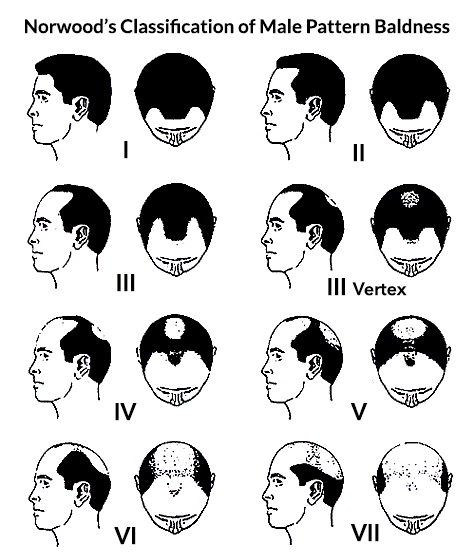Blitz News Digest
Stay updated with the latest trends and insights.
Hair Today, Gone Tomorrow: What Your Hair Loss is Trying to Tell You
Discover the hidden truths behind your hair loss and what it reveals about your health. Unlock the secrets to revitalizing your roots!
Understanding the Root Causes of Hair Loss: What Your Hair is Telling You
Hair loss can be a distressing experience for both men and women, and understanding the root causes of hair loss is essential for addressing this common issue. Our hair offers important clues about our overall health, and changes in hair density or texture can indicate underlying problems. Common factors contributing to hair loss include genetic predisposition, hormonal changes, nutritional deficiencies, and environmental stressors. For instance, conditions such as alopecia areata can be triggered by autoimmune responses, while hormonal imbalances due to pregnancy, menopause, or thyroid issues may also play significant roles.
In addition to medical conditions, examining your daily habits can shed light on the health of your hair. Stress, poor diet, and inadequate hair care practices can exacerbate hair thinning. Here are some steps to consider for healthier hair:
- Assess your diet: Ensure you are consuming a balanced diet rich in vitamins and minerals.
- Manage stress: Incorporating relaxation techniques such as meditation or yoga may help.
- Review hair care products: Avoid harsh chemicals that can damage hair follicles.
Listening to what your hair is telling you can be the first step towards understanding and addressing the root causes of hair loss.

Top 5 Nutrients for Healthy Hair: How to Prevent Hair Loss
Achieving healthy hair goes beyond the products you apply; it starts from within. To prevent hair loss, it's crucial to incorporate the right nutrients into your diet. Here are the top 5 nutrients that can make a significant difference:
- Protein: Hair is primarily made of protein, making it essential for growth and strength.
- Omega-3 Fatty Acids: These healthy fats nourish the hair follicles and promote a healthy scalp.
- Biotin: Known as the hair vitamin, biotin has been shown to improve hair thickness and overall health.
- Zinc: This mineral plays a critical role in hair tissue growth and repair.
- Iron: Iron deficiency can lead to hair loss, so ensuring adequate iron intake is vital.
Incorporating these nutrients into your diet can significantly enhance your hair's health and vitality. Consider adding foods rich in these nutrients such as eggs, fish, nuts, leafy greens, and legumes. Remember, consistency is key; a balanced diet combined with proper hair care can help you not only prevent hair loss but also achieve luscious locks. Don't underestimate the power of nutrition in maintaining your hair's health!
Is Your Hair Loss Stress-Related? Discover the Connection
Is your hair loss stress-related? It's a question that many people find themselves asking, especially when they notice an increase in shedding or thinning during particularly demanding times. Stress can manifest in various ways, and one of its less discussed effects is on our hair. Conditions such as telogen effluvium can occur when the body experiences significant stress, causing hair follicles to prematurely enter the shedding phase. This type of hair loss is often temporary, but understanding the connection between stress and hair health is crucial for long-term management.
Recognizing the signs of stress-related hair loss is the first step towards addressing the issue. Look for symptoms such as
- Increased hair shedding
- Thinning hair patches
- Changes in the texture or health of your hair